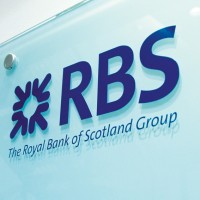
Aware of this sentiment, but conscious of the Chancellor’s apparent support for a “bad bank” solution for RBS’s more poorly performing assets, it is believed that advisers to the Treasury are now looking at the possibility of suggesting a third option.
The Sunday Telegraph understands that a number of leading minority investors have strongly signalled their displeasure at the suggestion that some of the state-backed bank’s more toxic assets might be sold off to the Government.
Those investors – who sit within the top 15 of RBS’s minority investor register – said they would vote against the creation of a bad bank were it put to shareholders.
Although the Government holds an 81% stake in the bank, any vote on selling its assets would require a vote under related party transaction rules, meaning the Government’s shares could not be voted.
The issue of whether to proceed with a bad bank will be one of the first issues Mr McEwan faces when he takes over as chief executive from Stephen Hester on October 1.
Mr McEwan was appointed on Friday following a six-week search.
At least two shareholders have raised their concerns with UK Financial Investments (UKFI), which manages the Government’s stake in RBS and Lloyds Banking Group.
The alternative third option would involve the creation of a much smaller vehicle – perhaps containing the assets of RBS’s troubled Ulster Bank subsidiary – which would allow the Treasury to partially get its way but would have less chance of being blocked by investors. Rothschild is presently compiling a report on the issue for the Treasury.
“I don’t know any shareholder who is keen on it,” said one blue-chip investor of a full good bank/bad bank split.
“The general view is it will be kicked into touch by the report [by Rothschild]. Then there’s the other option [the split being put to the vote] but it would be quite nice if it didn’t come to that.
“There is a third option, a mini option, which is possible to allow everyone to keep face,” he continued, referencing the Ulster split.
A second institutional investor said that the risk to the Government was that a split would mean having to inject more public cash. “If it’s a bad deal, it’s a bad deal for all taxpayers,” the investor said.















